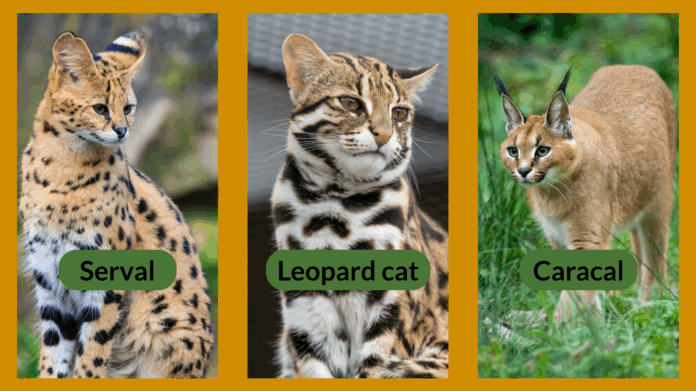The B.C. SPCA is welcoming proposed regulations from the B.C. government to ban all exotic cat species.
The province announced Tuesday, July 8, it is looking into a ban on owning, breeding and selling servals, caracals, ocelots and all other types of non-domesticated cats.
Hybrid cats like bengals and savannah cats – which are the result of several generations breeding between wild and domesticated cats – would not be included in the ban.
Larger wild cats like tigers and leopards are already regulated in B.C. under the Wildlife Act, but small and medium-sized exotic cats are not currently regulated.
If the regulations are approved, all exotic cat species would be added to the list of about 1,200 species designated as “controlled alien species” under regulation in the Wildlife Act. The list also includes animals like alligators, monkeys and pythons.
Breeding, selling or acquiring new animals from these species would no longer be permitted. Current owners could keep their exotic cats for the remainder of the animal’s life if they apply for a free permit.
Dr. Sara Dubois, senior director of animal welfare science and standards at the B.C. SPCA, said the lack of regulation make it difficult to know how many such cats there may be in the province and who is importing and breeding them. She said breeders can sell exotic kittens for as much as $10,000, and sometimes more.
“The reality is wild animals never make good pets,” said Dubois.
“Imagine being a serval cat on the plains of Africa, and coming to Canada and being locked up in an apartment.”
She said the cats maintain their wild instincts, even when bred in captivity, and they often don’t get the nutrition and care they need.
In 2019, the B.C. SPCA conducted an animal cruelty investigation on a serval breeder in Kamloops. It said 13 cats were being kept in “horrific conditions” and needed months of specialized care. Dubois notes there are only a handful of exotic vets in B.C. and the cats are prone to metabolic and other health and behavioural issues in captivity.
There are also concerns around human safety and environmental damage from exotic cats. Servals and caracals can reach up to up to 18-kilograms in weight, and their strong jumping and climbing abilities mean they are good at escaping homes. Dubois said there have been instances where such cats have escaped and killed neighbours’ pets or farm animals.
“They don’t want to be captive,” said Dubois. “They have the potential to harm our native wildlife if they escape and go hunting on their own.”
There are no accredited sanctuaries for such cats Canada. Dubois says because the cats have become trendy on social media, the few accredited sanctuaries in the U.S are often overwhelmed with rescues.
Non-domesticated cats are already prohibited in some other provinces, including Alberta. CBC News reported earlier this year an Alberta woman was fined $15,000 for owning a serval that was bred in B.C.
The B.C. SPCA has been advocating for the government to regulate these species of cats for years, and is happy to see movement on the issue.
The B.C. SPCA is encouraging British Columbians to contact the Ministry of Water, Land and Resource Stewardship to show their support for the proposed regulations.




